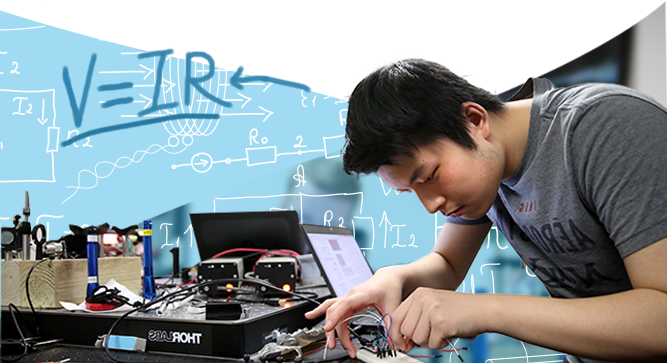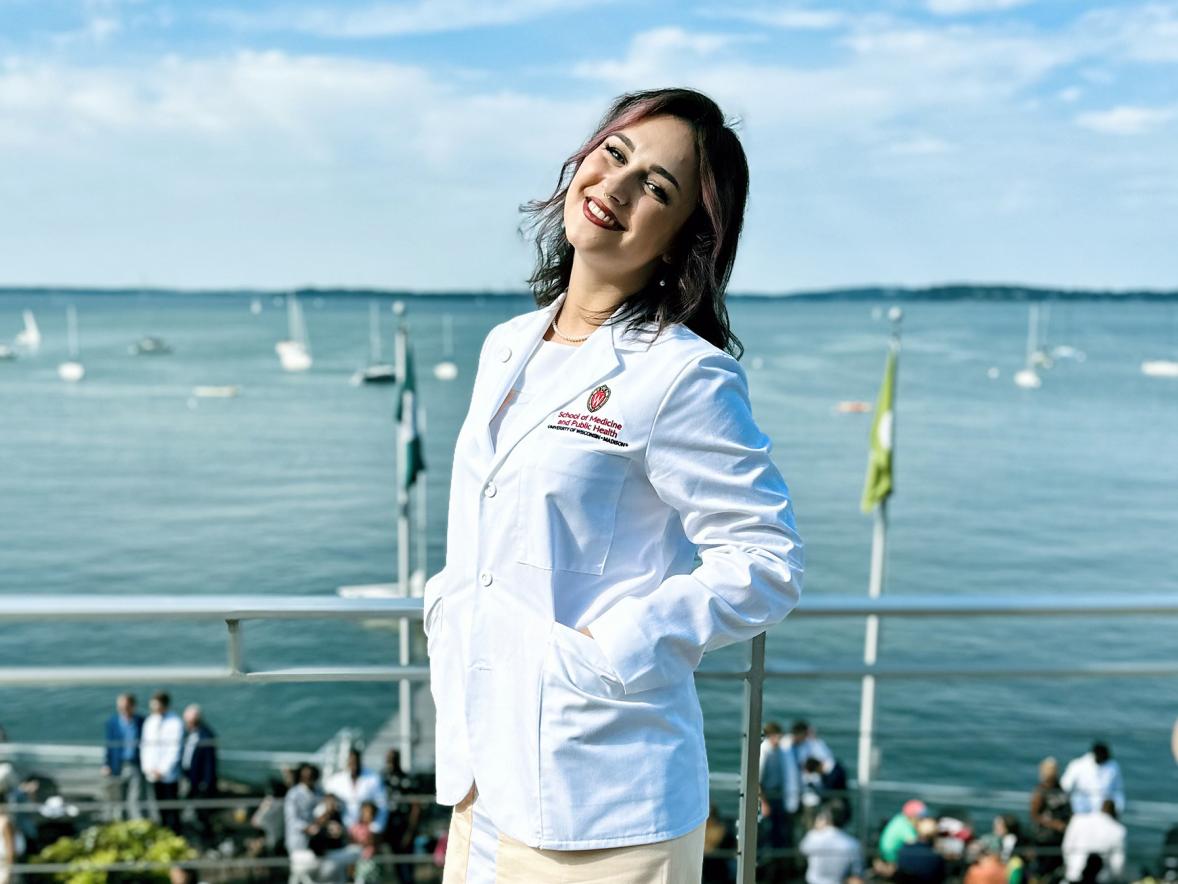Put Your Success in Perpetual Motion
UW-Stout's Bachelor of Science (B.S.) in Physics provides a comprehensive education merging theoretical foundations, with hands-on experimentation and computation. Our students engage in laboratory experiments, collaborative research projects, and real-world applications from day one. This approach ensures our graduates are prepared for careers in engineering, science, technology, and beyond.
100% of Graduates Are Employed or Continuing Education Within 6 Months

Career-Defining Curriculum
Our curriculum allows you to explore real research from day one, with no advanced math or physics required. Intro-level physics students are paired with upper-level physics students to form a lab research group focused on mentorship and leadership. Together, this cohort navigates scientific inquiry, performing data analysis, experimental design, ethical considerations, and professional communication.
Program Highlights
- Explore Key Fields: Our program exposes students to computational modeling, quantum computing, and quantum entanglement, providing foundational knowledge in pivotal scientific domains.
- Advanced Labs & Facilities: Our labs allow students to apply theory directly to experiments and computation.
- Applied Research from Day One: Students in the program begin working in research from day one with seasoned upper classmen offering mentorship and guidance.
- Collaborative Research Community: Join an active research community where students of all levels collaborate, innovate, and lead.
- Interdisciplinary Integration: Benefit from a curriculum that intersects with Engineering, Applied Math, and Computer Science, offering a multidisciplinary education.
Use the Request Information form to receive a program summary and learn more about the Bachelor of Science degree in Physics.
Request Information
Industry-Experienced Faculty Instruction
Forget TA-taught classes and 200-person lectures. At UW-Stout, building close relationships with our industry-experienced and academically accomplished physics faculty will play a key role in your polytechnic education and your career. Learn more about your future instructors!
Do More in Our Industry-Standard Labs
The B.S. Physics program provides students with hands-on experiences in lab settings, including a laser-focused lab and quantum entanglement lab. In addition to our lab spaces, students also receive applied learning with industry-standard instruments including:
- Optical table and breadboards
- Laser diodes
- Helium Neon laser
- Plasmon resonance reflective intensity monitor
- Thin film vacuum coaters
Current Applied Research Topics
Our research agenda is driven by a commitment to deepen understanding and innovate within the field of physics. Our faculty and students engage in hands-on research across several focus areas:
- Laser probing of atomic structure
- Plasma processing and thin films
- Modeling of molecular and gravitational systems
A Bachelor of Science Degree in Physics prepares students to work in a wide array of fields in the sciences and engineering. Students develop a solid foundation in physics, computation, and mathematics that will allow them to become expert problem solvers.
Students will get hands-on experience with experiments in the fields of plasma physics, lasers and optical physics, quantum mechanics and quantum computing. Students will also develop skills in computational modeling of various systems.
Learning Objectives:
Students who graduate from UW-Stout with a degree in Physics will be able to:
- Demonstrate an understanding of and ability to apply the principles of physics to solve real-world problems.
- Be proficient in applying experimental design, analysis and interpretation of data, and application of computational modeling to solve problems.
- Be able to work effectively as members of a team and communicate through writing and oral presentations in a professional manner.
The coursework, hands-on laboratories, instrumentation training, and research experiences will prepare you to work and be productive in a variety of fields including:
Engineering
- Systems Engineer
- Engineering Technician
- Electrical Engineer
- Project Engineer
- Mechanical Engineer
- Test Engineer
- Process Engineer
- Production Engineer
- Design Engineer
- Manufacturing Engineer
- Application Engineer
- Scientist
Research and Technical
- Research Assistant
- Researcher
- Research Technician
- Junior Specialist
- Patent Examiner
- Accelerator Operator
- Physicist
- Scientist
Programming/Software
- Software Engineer
- Software Developer
- Application Developer
- Data Engineer
- Data Analyst
- Data Scientist
- Machine Learning Engineer
- Consultant
Education
- High School Physics Teacher
- High School Math Teacher
- Middle School Science Teacher
- Tutor
Finance/Business
- Data Analyst
- Research Analyst
- Project Mnager
- Investment Banker







